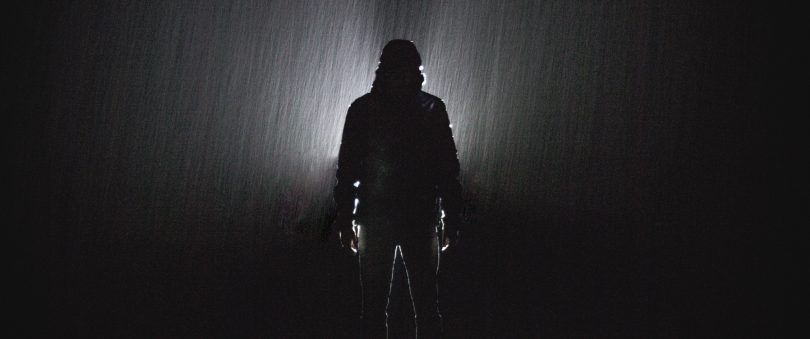Editor’s Note:
As most readers know, WitnessLA has been publishing a series of essays written through the FirstWatch project at San Quentin State Prison. The authors of the essays are talented San Quentin inmates who aim with their writing to, as they put it, explore “the connections, challenges, and intimacies between self, society, and incarceration.”
In the essay below, James King describes the anticipation and also worry that occurs when word comes around that the guards will be coming to do a search of everyone’s respective cells. And how, nevermind how well one believes oneself to be following the rules, there is always the possibility of a wild card.
Happy reading.
Anticipation
by James King
“They’re coming in the morning.”
No need to ask who. In prison, “they” are the guards, and since we’d been on lockdown for five days at the time, it was also obvious what they were coming to do. Search.
I learned very early in my incarceration that I lack the necessary imagination to successfully hide contraband. Early efforts at hiding wood glue, a clothing line, and even a paper clip that I found particularly useful for hanging things up were all sniffed out, and though I was fortunate to avoid disciplinary write-ups for these contraband items, I learned to just get rid of illegal stuff, or at the very least, not try to hide it.
Even so, at the news that a search would be conducted, I felt an odd mix of nerves and anticipation rattling through my brain like characters in a WWE match.
Around me, the energy was picking up noticeably as we returned from the chow hall back to the housing unit. Some were walking back to the unit quickly; these were the more experienced guys who are often involved in things that I try not to know too much about.
Others were expressing a sense of relief, because it was commonly known that it wouldn’t be long after the search that we might get off of lockdown and return to normal activity.
But even among those who were more serene, like me, there was still an uptick in nerves. Some unknown person would soon be combing through our most intimate possessions. Letters from my Dad, who passed away in 2010, old family photos, my writings.
To get the upper hand on my rising anxiety, I thought positive thoughts, like the fact that I believe I have a cellie who also avoids contraband. Others aren’t so lucky. I’ve seen guys in my social circle who have had cellmates who kept homemade knives, or cell phones. Both could result in disciplinary write-ups for either or both of the residents of that cell.
Some may wonder, why would someone stay in a cell with someone who has a knife? Well, often cellies keep secrets from each other, but even if the contraband is known, just wanting to move to a new cell doesn’t mean you can. Our housing unit is filled to at least 180% capacity. The few people who don’t have cellies don’t want one, and most people don’t want to go through the hassle of vetting a new cellie, even if they aren’t particularly content with the cellie they have. The devil you know and all.
In the cell, trust, compatibility, and the ability to compromise have a special value, because you are in a forced pairing that may affect your life or your opportunity for freedom. The hope is for a cellie who won’t jeopardize your safety, but in practical terms, you tend to ride it out through thick and through thin. In other words, a semblance of compatibility in a 5′ by 8′ cell with a person with whom you will spend many hours of many days, tends to trump some abstract notion of release years down the road.
In the end, the anticipation of a search is simply another form of stress that most incarcerated people deal with in mostly healthy ways. Whether it’s working hard to hide their contraband, or taking everything off of their shelves to make the search easier for the guards, it all has a sense of normalcy that is particular to this environment.
In the morning, no one came. They searched another housing unit instead. But we know, they are still on their way. Maybe tomorrow.
By James King CDCR # V-69030 2–W–10
Author James King is a contributing writer for Re:vision, where this essay first appeared. Some of his influences are James Baldwin, Angela Davis, his hometown of Ferguson, MO, and the belief that all oppression must be eradicated. King says he writes to introduce marginalized perspectives, and he writes to feel whole.
Re:vision, where this essay was first published, is a series of personal blogs written through the FirstWatch project at San Quentin State Prison. Through traditional postal mail letters, the journalists delve into a list of topics, looking at them through a lens that includes the complex interweave of relationships between self, society, and incarceration, also opening themselves up to responding to perceptions and questions posed by the public.
FirstWatch is a media project started by a group of men incarcerated at San Quentin, in collaboration with Re:store Justice, which works in partnership with incarcerated people, survivors of crime, district attorneys, and the community. Their mission is to re-imagine and reform our criminal justice system to be one of true inclusion and justice.


[…] in the day, the Goff group spent time with San Quentin’s FIRSTWATCH production team, preparing a mini-documentary to be titled “Lost Dreamers.” The plan is that […]